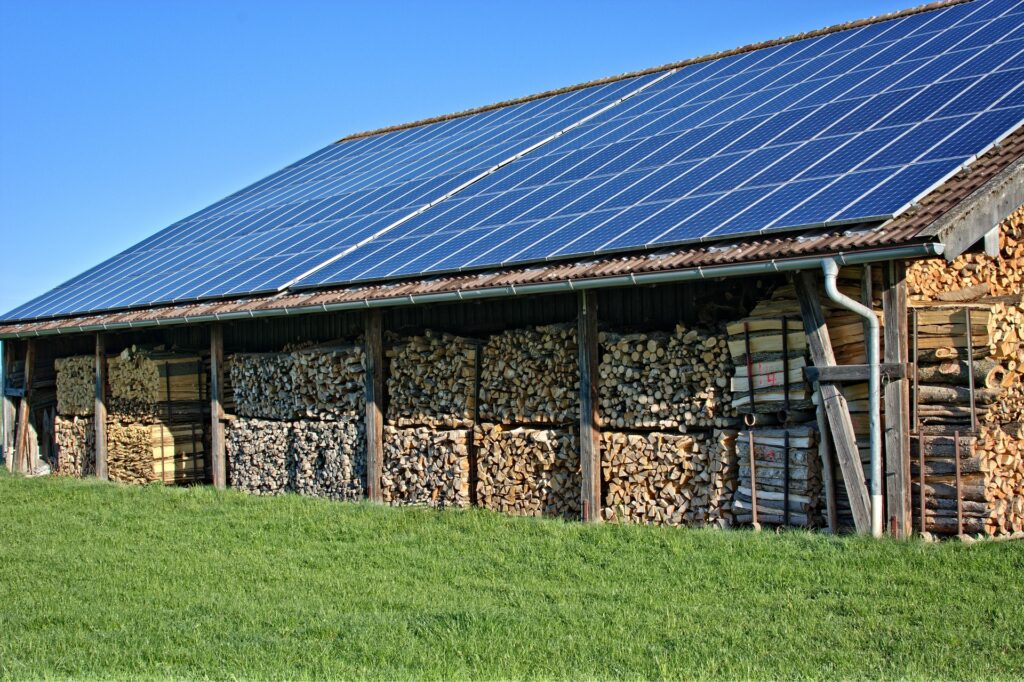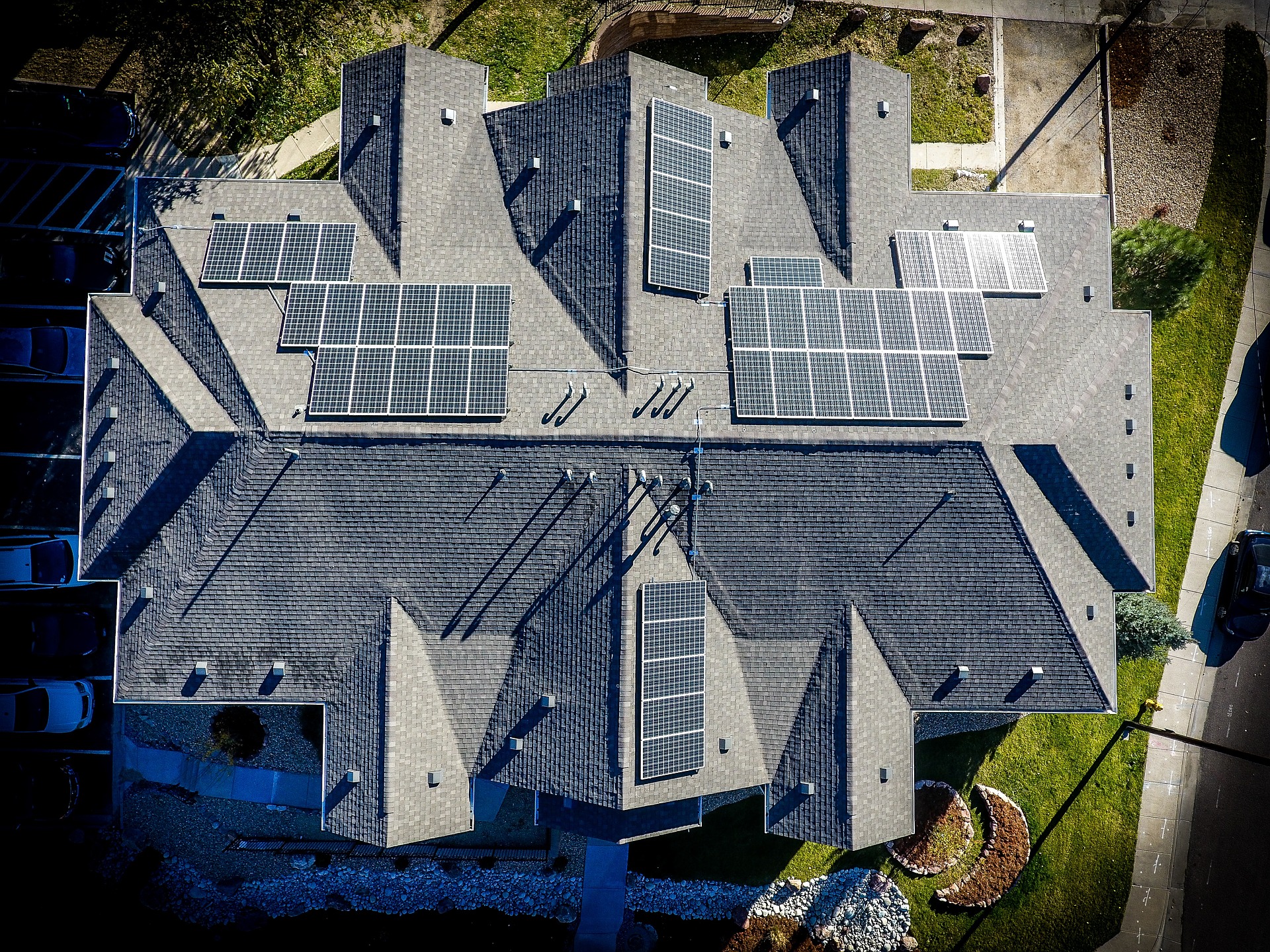Introduction
Step into a world where sunshine isn’t just for picnics and beach days. It’s a world where solar panels turn sunlight into power, and the Solar Energy Pros and Cons are as intriguing as a riddle from the sun itself. In this guide, we’re diving deep into the solar realm, uncovering the shining advantages and the quirky drawbacks that come with harnessing the sun’s energy. It’s like discovering the secrets of the universe, one photon at a time. So, grab your shades, because we’re about to embark on an enlightening journey.

Advantages of Solar Energy
Clean and Renewable Energy Source
Imagine the sun as a cosmic battery, sending us more energy in an hour than humanity could possibly use in an entire year. When we delve into the world of Solar Energy Pros and Cons, solar panels emerge as the ingenious adapters that enable us to plug into this boundless source of clean, renewable energy. They act as the intermediary between the sun’s radiant energy and our everyday power needs.
Just envision this: solar panels, those unassuming panels perched on rooftops and open spaces, have the remarkable ability to convert sunlight into electricity. This transformation is akin to turning sunshine into power, much like a magician conjuring wonders out of thin air. And the best part? This process occurs without emitting harmful gases, contributing to air pollution, or nudging climate change along. It’s as if we’ve borrowed a cup of sugar from a neighbor and been gifted a lifetime supply—a truly remarkable exchange.
Solar panels are not just energy generators; they’re ecological guardians. By harnessing the sun’s energy, they power our lives while respecting the delicate balance of our environment. It’s like having a perpetual energy stream that flows directly from the cosmos to our homes, schools, and businesses. The photons of sunlight, converted into electrons, dance through the panels and into our lives, illuminating spaces, charging devices, and contributing to a brighter, cleaner future.
As we contemplate the Solar Energy Pros and Cons, let’s marvel at the extraordinary simplicity of solar panels. Their capacity to transform a boundless natural resource into usable power echoes the innovative potential of humanity. By adopting this technology, we align ourselves with a future that’s not only energy-efficient but also environmentally responsible. It’s like embracing a sustainable magic trick—one that converts sunlight into a force for good, creating a virtuous cycle of energy production, utilization, and preservation.
Environmental Benefits
The Earth is like a fragile garden, and every action we take can either nurture or harm it. When exploring the realm of Solar Energy Pros and Cons, choosing solar energy becomes akin to planting a forest of positive impact. By adopting solar power, you’re not just generating electricity—you’re sowing the seeds of change that can flourish into a greener, more sustainable future.
Picture this: as solar panels convert sunlight into electricity, they do so without burning fossil fuels or emitting harmful pollutants. This conscious choice to harness clean energy means you’re actively participating in the reduction of air pollution and greenhouse gas emissions. It’s like taking a barren wasteland and transforming it into a thriving oasis, where each solar panel represents a step toward a healthier, more vibrant planet.
Cost Savings Over Time
Picture this: you install solar panels on your roof, and suddenly your electricity bill starts shrinking faster than a cotton shirt in a hot dryer. When delving into the world of Solar Energy Pros and Cons, this transformation is not just a magical trick—it’s a result of harnessing the power of the sun. While the initial investment might make your wallet feel like it’s been to a spa (relaxed and lighter), the long-term savings are the real treasure.
Imagine reaping the rewards of your solar investment over time. The energy produced by those panels becomes a silent contributor to your finances, gradually reducing your energy bills. It’s like planting a money tree that thrives not only with leaves but also with the growth of dollar bills. With each sun-soaked day, you’re making a financial decision that aligns with environmental responsibility, while also making your wallet smile.
Low Maintenance
Here’s the beauty of solar panels: they’re like your trusty old backpack from school that you never really had to replace. Solar systems are incredibly low-maintenance. A bit of occasional cleaning, an annual check-up, and they’re good to go. No need for complex rituals or specialized care—just a little TLC to keep them humming along. It’s like having a pet rock that powers your home while requiring less attention than a goldfish.
Energy Independence
Remember the last time a storm knocked out the power in your neighborhood? Well, with solar energy, you can turn those moments into stories of triumph. By generating your electricity, you’re no longer at the mercy of utility companies or external sources. It’s like having your own fortress of solitude, but instead of hiding from the world, you’re powering it.
Job Creation
Solar energy isn’t just about collecting rays; it’s also about creating jobs. From research and development to manufacturing, installation, and maintenance, the solar industry is a bustling hive of activity. It’s like a job fair where everyone’s got a sunflower in their lapel. As the industry grows, so does the job market, making solar power a superhero that fights both environmental concerns and unemployment.
Now, let’s explore the other side of the sunbeam and see where the shadows fall.

Disadvantages of Solar Energy
Intermittent Energy Production
Picture this: your solar panels are like eager sunbathers on a beach, soaking up rays to turn into energy. However, when clouds roll in or the sun sets, they decide it’s time for a siesta. The result? Intermittent energy production. You might find yourself needing backup power sources during cloudy days or nighttime. It’s like having a friend who’s super enthusiastic at parties but occasionally takes mysterious disappearing acts.
Initial Investment
You’ve heard that good things come to those who wait, but good things can also come to those who invest. Solar panels might have an initial cost that rivals the price of a fancy vacation, but think of it as splurging on a lifetime supply of clean energy. While it might feel like you’re parting ways with a small fortune, the money you save on future energy bills can make it a worthy trade-off. It’s like buying a vintage car that appreciates in value over time—only this car powers your home.
Space Requirements
Now, let’s talk real estate. Solar panels need space, and the more sunlight they can catch, the merrier. If you’ve got a sprawling backyard or a spacious rooftop, you’re in luck. But if you live in a cozy apartment or a shade-filled corner, you might need to get creative. It’s like planning a party: the more room you have, the more guests you can invite, but sometimes you’ve got to work with the space you’ve got.
Weather Dependency
Here’s the catch: solar panels don’t appreciate overcast days. When clouds hide the sun, their energy production takes a hit. Additionally, shadows from nearby structures can play party pooper, affecting efficiency. It’s like preparing for a picnic and then having a sudden downpour—it throws a wrench in your plans, but you adapt and make the best of it.
Energy Storage Challenges
Remember those times you wished you could bottle up sunshine and save it for a rainy day? Well, when it comes to Solar Energy Pros and Cons, energy storage is like attempting to catch sunlight in a jar. While battery technology is making leaps and bounds, storing excess solar energy efficiently is still a challenge. It’s like trying to preserve a rainbow in a jar—it’s a noble endeavor, but not without its complications.
Aesthetic Considerations
Picture this: you’ve got your dream home, and then you install solar panels. While they’re doing their eco-friendly dance, some might find them less than fashionable. Homeowners’ associations might raise their metaphorical eyebrows, and local regulations could be like the fashion police for your rooftop. It’s like wearing a quirky accessory that not everyone gets, but you rock it with pride.
Overcoming Challenges
Advancements in Energy Storage
Fear not! When it comes to Solar Energy Pros and Cons, science and technology are like the ultimate problem-solving duo. Energy storage solutions are evolving at a rapid pace, which means you won’t have to worry about losing that precious solar energy when the clouds roll in. The future is looking bright, with batteries becoming smarter, cheaper, and more efficient. These advancements are making it easier than ever to store and utilize energy when you need it most, even during those moments when the sun decides to take a break.
Imagine a world where your solar panels not only generate power when the sun is shining but also store excess energy for use later. It’s like having a personal energy vault, ready to unleash its power whenever you need it. With technology continuously pushing the boundaries of what’s possible, energy storage solutions are transforming the way we harness the potential of solar energy. This progress not only enhances the reliability of solar power but also brings us one step closer to a more sustainable and eco-friendly future.
So, whether the sun is hiding behind clouds or gracing us with its brilliance, rest assured that science and innovation are working hand in hand to make the most of the sun’s energy. With each advancement in energy storage technology, the barriers that once stood in the way of seamless solar energy utilization are slowly fading into the past. As we look toward a world where solar energy is a consistent and reliable source, we’re reminded that even the most challenging aspects of harnessing sunlight are gradually becoming a thing of the past.
Technological Innovations
Get ready to be wowed! The world of solar energy is a playground for innovators. Imagine solar panels that are as flexible as yoga instructors, capable of bending and curving to fit various surfaces. Or consider solar-powered gadgets that charge your phone while you’re out and about, transforming sunlight into communication power. With every leap in technology, solar energy becomes more accessible, efficient, and adaptable. It’s like witnessing a sci-fi movie unfold in your own backyard.
Government Incentives and Policies
Ever wish you could get rewarded for making eco-friendly choices? Governments around the world are channeling their inner Oprah by offering incentives, rebates, and tax breaks to those who embrace solar power. It’s like winning a prize for doing something good for the planet. From reduced taxes to financial support for installations, these incentives make the path to solar energy a more enticing journey.
Is Solar Energy Right for You?
Location and Sunlight Availability
Before you embark on the journey into the realm of Solar Energy Pros and Cons, let’s have a chat about geography. The amount of sunlight your location receives plays a pivotal role in determining how effectively your solar panels will perform. Think of it as choosing a vacation spot—the destination’s climate can greatly impact your experience.
If you reside in a sun-soaked region, your solar panels will be as joyful as a sunbather in Cancun, soaking up abundant sunlight to generate energy. The ample sunshine acts as a catalyst, maximizing the electricity your panels produce and enhancing their overall efficiency. It’s like choosing a vacation destination where the sun never takes a break, ensuring a constant supply of warmth and relaxation.
On the flip side, if clouds frequently grace your skies, your solar panels might have moments of dimness, much like a beachgoer trying to enjoy the ocean view through intermittent cloud cover. While they won’t be as productive as they would on a clear day, it doesn’t mean they’re completely powerless. Even under cloudy conditions, solar panels can still generate energy, albeit at a slightly reduced rate. It’s like opting for a beach getaway that occasionally experiences short bursts of rain—it doesn’t completely dampen the experience, but it’s not all sunshine and clear skies.
As you consider whether solar energy aligns with your goals, remember that the geography of your location plays a significant role. Assess the amount of sunlight your area receives, and think about whether your solar expectations match the reality of your climate. Just as you would research the weather forecast before planning a vacation, understanding your location’s solar potential is crucial for making an informed decision about adopting solar energy.
Financial Considerations
Now, let’s dive into the financial realm of Solar Energy Pros and Cons. Installing solar panels requires an initial investment that might make your bank account gasp for air. But think of it as planting a money tree—one that blossoms with savings over time. While the upfront costs can feel like a significant outlay, consider it an investment in your energy future. As the energy your panels generate offsets your electricity bills, you’ll gradually witness substantial savings that can add up over the years.
Visualize this scenario: you’ve installed solar panels on your rooftop, and suddenly your electricity bills start shrinking faster than a melting ice cream cone on a hot summer day. While the initial financial commitment might resemble the cost of that high-end espresso machine you’ve been eyeing, the analogy holds true. Just as the machine eventually pays for itself through savings on daily latte expenses, solar panels can pay for themselves through reduced energy bills.
It’s like discovering a hidden treasure that appreciates over time. With each sunrise, your solar panels generate power, channeling sunlight into your home and offsetting your energy consumption. As the months and years pass, the cumulative energy savings contribute to recouping the initial investment. In essence, the money tree you planted begins to flourish, and the financial benefits of solar energy become increasingly evident.
As you weigh the Solar Energy Pros and Cons, consider the long-term financial advantages that solar panels bring. While the upfront investment might seem daunting, the journey toward energy independence and reduced bills is akin to a well-crafted financial strategy. With solar energy, you’re not just investing in a cleaner planet; you’re also investing in a brighter financial future.
Environmental Impact
Are you the planet’s biggest fan? If Solar Energy Pros and Cons are swirling in your mind and reducing your carbon footprint is high on your priority list, solar energy is like your personal cape. By adopting this renewable source of power, you’re not just saving on electricity bills—you’re sending pollution and greenhouse gases on an extended vacation. It’s like giving the Earth a loving bear hug and saying, “I’ve got your back.”
Embracing solar energy isn’t just a choice; it’s a statement of commitment to a cleaner and more sustainable future. It’s like joining an environmental superhero league where every kilowatt-hour produced from sunlight is a step toward reducing our impact on the planet. From using sunlight to power your home to reducing your dependence on fossil fuels, every choice you make in favor of solar energy is a victory for the environment.
Think of solar energy as the ultimate green warrior, battling against the forces of pollution and climate change. By tapping into the sun’s energy, you’re contributing to a cleaner atmosphere, healthier ecosystems, and a brighter future for generations to come. It’s like enlisting in a mission to save the planet, armed with the power of sunlight and a determination to make a positive impact.
So, as you ponder the Solar Energy Pros and Cons and weigh the benefits against the challenges, remember that every kilowatt-hour of solar energy is a step toward a more sustainable world. With your personal cape of solar panels, you’re not just reducing your carbon footprint; you’re making a lasting difference. It’s like joining forces with the Earth itself, ready to tackle the challenges of climate change and embrace a greener tomorrow.
Conclusion
From solar panels to superheroes, this journey through the universe of Solar Energy Pros and Cons has been quite the adventure. We’ve uncovered the shiny advantages that light up the skies and the playful quirks that cast occasional shadows. Just like superheroes aren’t without flaws, solar energy has its cons. But as technology marches forward and innovation blooms, those cons are shrinking faster than an ice cream cone on a hot summer day.
So, as we bid farewell to our solar-powered escapade, remember this: no journey is complete without a mix of sunny and shady moments. With every new day, the sun rises with its promises and possibilities, much like solar energy itself. And as we look to a future where clean energy takes the center stage, we’re confident that the pros will always outweigh the cons. It’s like watching the clouds part to reveal a rainbow—brief moments of rain give way to a breathtaking display of vibrant colors, reminding us of the beauty that comes after the challenges.
As we close this chapter on solar energy, let’s celebrate the strides we’ve made and the possibilities that lie ahead. Like the sun breaking through the morning mist, solar energy continues to illuminate our path toward a more sustainable and brighter future.
Solar Energy Pros and Cons: FAQs
Can I use solar energy on cloudy days?
Absolutely! While solar panels may not be as efficient on cloudy days, they can still generate power. Plus, with the advent of energy storage solutions, you won’t be left in the dark even when the sun decides to hide.
Are solar panels high-maintenance?
Not at all! Solar panels require minimal maintenance. Occasional cleaning to remove dust and debris, along with an annual check-up, is usually sufficient to keep them functioning optimally.
Do solar panels work at night?
Unfortunately, no. Solar panels rely on sunlight to produce electricity. However, energy stored during the day can power your home after the sun sets. It’s like having a magic jar of sunshine.
What are the financial benefits of solar energy?
While the initial investment in solar panels can be significant, the long-term savings on your electricity bills can be substantial. Over time, your panels can pay for themselves and continue to provide energy at a lower cost.
How do I know if solar energy is suitable for me?
Consider your location’s sunlight availability, your budget, and your commitment to environmental sustainability. If you’re in a sunny area, looking to save money over the long run, and eager to reduce your carbon footprint, solar energy could be a fantastic fit for you.



